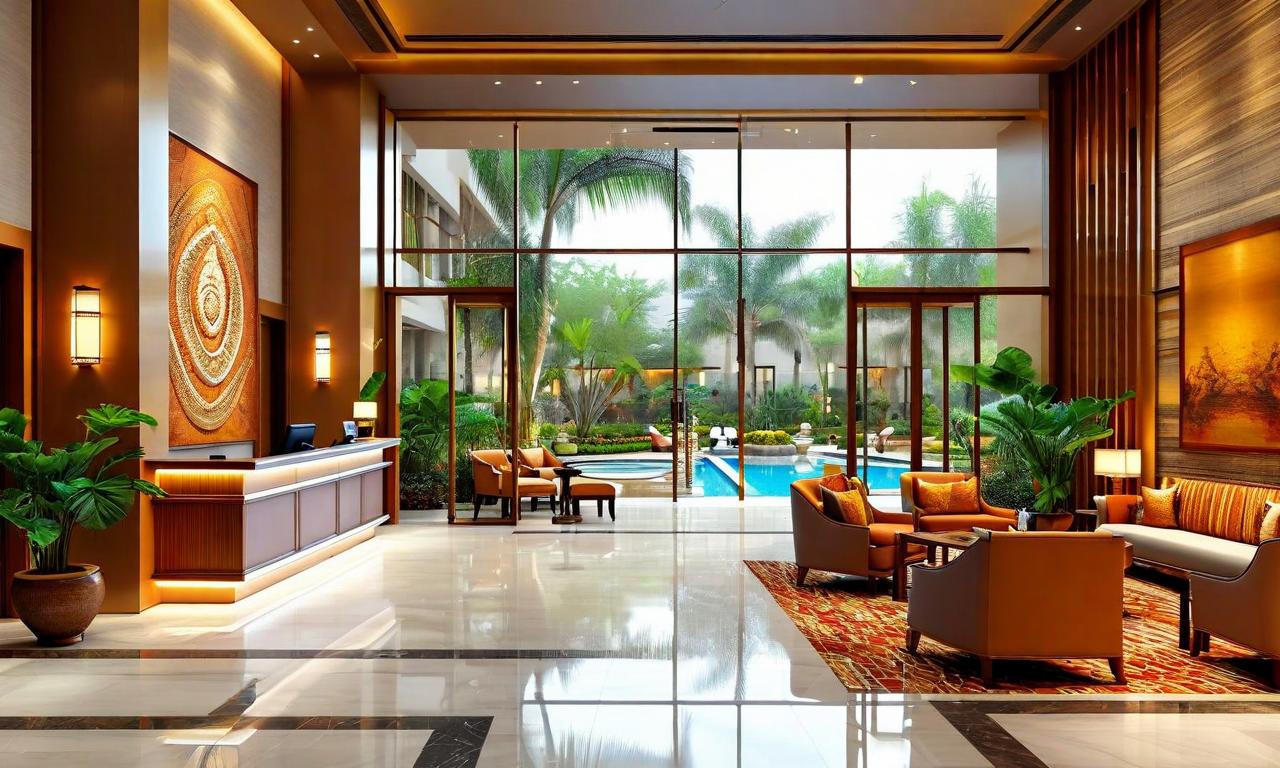Indian Hospitality Sector Soars: Radisson Hotel Group Adapts to Evolving Travel Trends
The Indian hospitality sector is experiencing significant growth, with Radisson Hotel Group (RHG) adapting to changing consumer preferences. Domestic air passenger traffic has increased by 20% from pre-pandemic levels to 152 million, while international visitor spending has reached ₹3.10 trillion. RHG is implementing flexible pricing strategies, enhancing offerings, expanding its premium portfolio, adopting an asset-light model, focusing on both primary and secondary cities, and embracing digital transformation. The wellness tourism sector in India is expected to grow at a 20% CAGR through 2030, aligning with the trend of Indian consumers preferring premium stays.

*this image is generated using AI for illustrative purposes only.
The Indian hospitality sector is experiencing a remarkable resurgence, with Radisson Hotel Group (RHG) at the forefront of adapting to changing consumer preferences. This growth is driven by a combination of factors, including increased domestic air travel, record international visitor spending, and a shift towards premium accommodations.
Booming Travel Industry
India's travel industry is witnessing unprecedented growth:
| Metric | Value |
|---|---|
| Domestic air passenger traffic | 152.00 million |
| Increase from pre-pandemic levels | 20.00% |
| International visitor spending | ₹3.10 trillion |
Radisson's Strategic Adaptations
RHG is implementing several strategies to capitalize on these trends:
Flexible Pricing and Revenue Strategies: Adjusting to accommodate short leisure breaks to drive-to destinations like Karjat, Lonavala, Shimla, and Mussoorie.
Enhanced Offerings:
- Flexible packages
- Experiential dining options
- Last-minute booking facilities
Premium Portfolio Expansion:
- Opened The Radisson Collection Hotel & Spa, Riverfront Srinagar
- Plans for additional high-end properties in Jaipur and Udaipur
Asset-Light Model: Partnering with high-net-worth individuals and institutional investors for expansion.
Geographic Focus:
- Nearly 40% of branded room demand in primary cities
- Over 30% of RHG's expansion plans in secondary cities
Digital Transformation: More than 70% of RHG's direct bookings come through digital channels, enabling dynamic pricing and personalized offers.
Wellness Tourism Boom
The wellness tourism sector in India is poised for significant growth:
| Metric | Projection |
|---|---|
| Expected CAGR through 2030 | 20.00% |
This surge in wellness tourism aligns with the overall trend of Indian consumers preferring premium stays over budget options.
Industry Implications
The shift in consumer preferences and the robust growth of the hospitality sector have far-reaching implications:
Diversification of Offerings: Hotels are expanding their services to cater to various traveler needs, from short leisure breaks to wellness retreats.
Technology Integration: The high percentage of digital bookings indicates a need for continued investment in online platforms and personalized digital experiences.
Geographic Expansion: The focus on both primary and secondary cities suggests a more balanced development of the hospitality infrastructure across India.
Economic Impact: The growth in international visitor spending and domestic travel is likely to have a positive ripple effect on local economies and employment in the hospitality sector.
As the Indian hospitality sector continues to evolve, companies like Radisson Hotel Group are setting the pace for innovation and adaptation. Their strategies reflect a deep understanding of changing consumer behaviors and preferences, positioning them well to capitalize on the sector's growth trajectory.




























